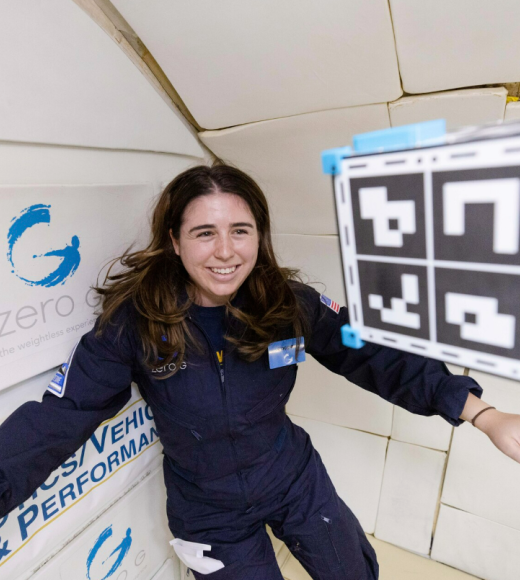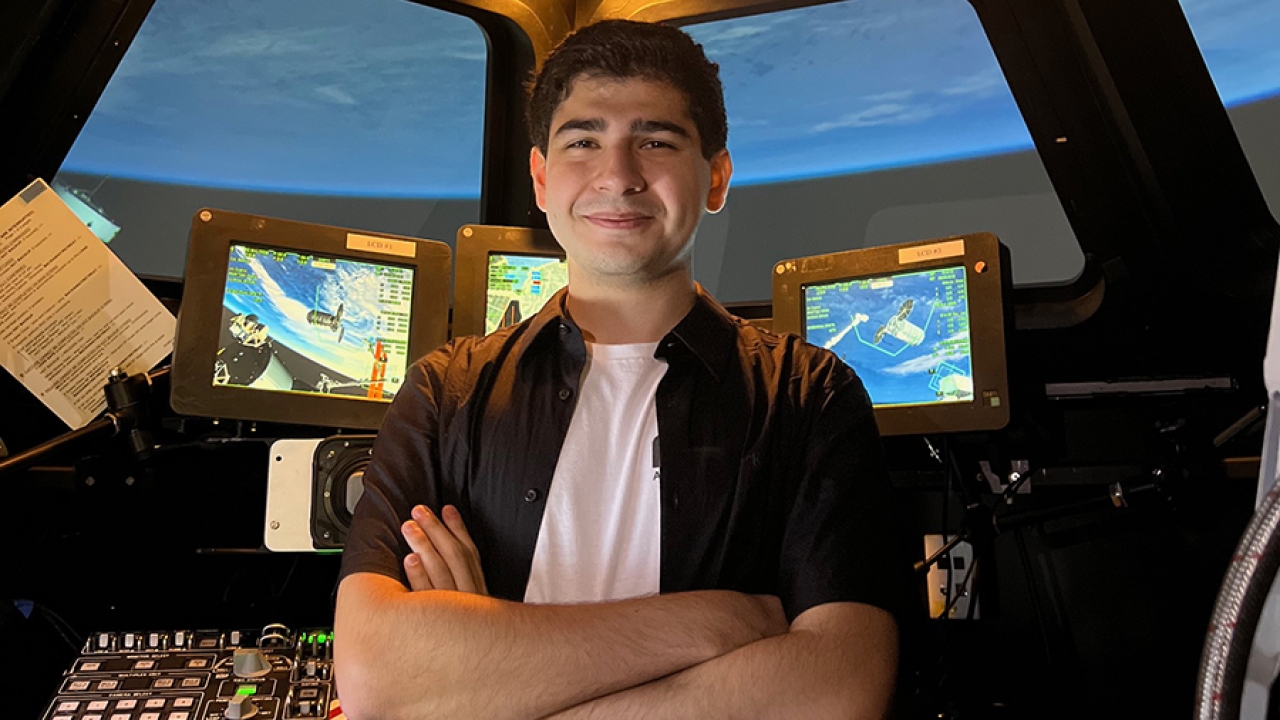Graduate Student Spotlight: Kylie Cooper
M.S. Student, Department of Mechanical and Aerospace Engineering

This spotlight is a part of our 2023 International Women's Day Feature.
What inspired you to study engineering? Describe your path to graduate studies at UC Davis.
I was drawn into engineering because I’ve always loved figuring out how things work. My love for aerospace engineering blossomed during undergraduate studies at UC Davis, when I joined the Space and Satellite Systems (SSS) club and gained hands-on experience with CubeSat (small satellite) design. Work that I was doing as an undergraduate in the SSS club eventually evolved into my current work as a graduate student. Prior to graduating with my bachelor’s degree (double major in mechanical and aerospace engineering) from UC Davis, I wrote a proposal to the NASA Tech Flights Grant, and was very fortunate to be chosen to test out my experiment (low-cost CubeSat reaction wheel demonstration) through zero gravity parabolic flights. I am now leading that research project as a Master's student in the Human, Robotics, Vehicle, Integration and Performance (HRVIP) lab in the Center for Spaceflight Research (CSFR).
Highlight your current research. What do you love about it, why are you excited, and how do you stay motivated?
My research is focused on developing low-cost reaction wheels for small satellites called CubeSats. Reaction wheels allow you to stabilize and orient your satellite to meet your mission objectives - for example, to point your solar panels at the sun or to point a science instrument at the earth. Reaction wheels are essential to the attitude (orientation) control of CubeSats, but they often cost thousands to tens of thousands of dollars to purchase and are difficult to manufacture reliably. To solve this issue, my project repurposes Hard Disk Drives (HDDs), which are computer memory storage devices, as low-cost CubeSat reaction wheels. The HDD reaction wheel enables university students to have attitude control of their CubeSat missions without breaking the bank with an expensive commercial option or rolling the dice with an untested in-house design.
I lead two very unique projects to prove through demonstration that the HDDs can work as effective reaction wheels: 1) testing the HDDs in a zero gravity (0G) environment achieved through parabolic flights and 2) integrating the HDDs into a NASA Johnson Space Center (JSC) CubeSat which will be launched into space in the near future. I work in an interdisciplinary role, including mechanical/electrical design, HDD controller design, flight software development, operations/testing, project management and mentoring. Over the course of my master’s research, my team has successfully tested the HDDs in six parabolic flights and has completed integrated testing of the HDDs with the NASA JSC CubeSat. Our hardware will be flying to space soon!
My favorite part of my research project has been working with my amazing team of undergraduate and graduate students. Our team is close-knit, and we are constantly learning from each other. I am also very fortunate to have the opportunity to fly with my hardware in the 0G parabolic flights. Parabolic flights simulate the zero-gravity environment of space and give you a glimpse into what it feels like to float like an astronaut. Floating in microgravity is a surreal feeling - almost as if someone has turned off physics.
I draw a lot of motivation from my peers and my Principal Investigator, Stephen Robinson. UC Davis is full of well-rounded, talented individuals, and I am constantly amazed by their passion, drive and accomplishments. I am also very excited to be joining NASA’s Jet Propulsion Laboratory (JPL) after graduating in June! JPL pushes the boundaries of space mission engineering, and working there has been a dream of mine for many years now. The opportunities I have had at UC Davis have been instrumental in helping me achieve that dream.
The 2023 International Women's Day theme is #EmbraceEquity. How do you embrace equity in the engineering field?
It’s important for students to realize that they don’t have to fit the mold of a "stereotypical" engineer. Bringing diverse backgrounds, experiences and creative mindsets into the engineering environment is essential. As a first-generation college student, mentoring has played a huge role in my development as a student and engineer. When I am working with undergraduate students, I encourage them to find their interests and I strive to tailor my mentoring to best fit their needs and provide them with hands-on engineering experience.




